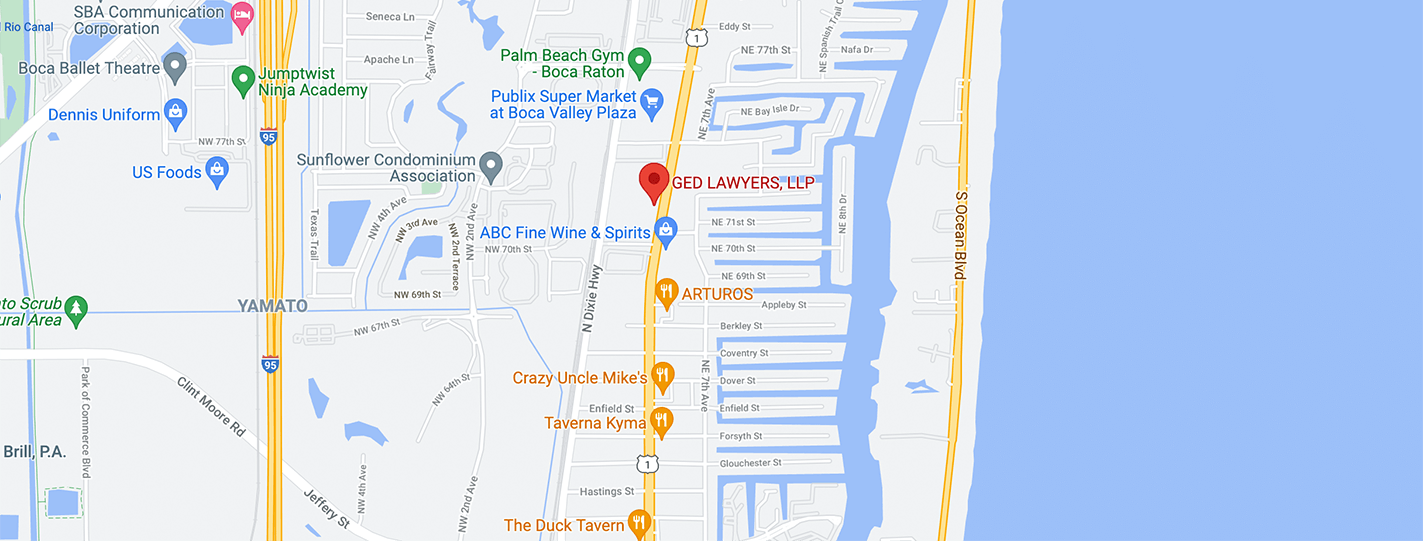
Water damage in an apartment setting can be a significant issue, leading to costly repairs, health hazards from mold and mildew, and disrupted living conditions. Determining who is responsible for addressing and covering the costs of this damage—be it the tenant or the landlord—is not always straightforward. Responsibility often hinges on various factors including the source of the water damage, specifics outlined in lease agreements, and applicable local laws.
For instance, damage originating from an overflowing bathtub might be treated differently from one caused by a leaking roof. Given the complexities involved, understanding these distinctions is crucial. This is where the knowledge and experience of a property damage lawyer in Boca Raton can be invaluable. An attorney can help with legal responsibilities, insurance claims, and tenant rights, ensuring that all parties are fairly represented and accountable.
Water Damage and the Law
The legal framework surrounding water damage in rental properties is chiefly governed by landlord-tenant law, which varies significantly from one state to another. At its core, this body of law outlines the duties and rights of both landlords and tenants, with landlords typically required to maintain livable conditions and tenants responsible for keeping the property in good order.
The lease agreement plays a critical role in defining these responsibilities, as it can define who is liable for water damage under various circumstances, potentially altering the default legal responsibilities. Furthermore, state-specific regulations can significantly influence these duties. For instance, some states may impose stricter requirements on landlords regarding property maintenance and emergency responses, while others might offer more protections for tenants.
It’s essential for both parties to understand the local laws to navigate and resolve water damage issues effectively, preventing legal disputes and ensuring a swift recovery from damage.
we are here for our clients and their legal needs, with proficiency in a broad range of fields. GET A FREE CONSULTATION
Determining Fault After Water Damage in an Apartment
Determining fault in the event of water damage in a rental property involves several critical steps. First, it’s important to investigate the source of the damage. This can reveal whether the cause is due to environmental factors, infrastructure failures, or tenant actions. Next, reviewing the maintenance history of the property can provide insights into whether the landlord has neglected necessary upkeep, which could attribute fault to them. Additionally, consulting the lease agreements is crucial, as these documents often contain specific clauses that outline the responsibilities of each party in the event of water damage.
The importance of documentation cannot be overstated. Keeping detailed records of communications, repairs, and regular inspections can be pivotal. Professional assessments from plumbers or water damage specialists also play a vital role in objectively determining the condition of the property and the causes of any damage.
Resolving Disputes
When disputes arise from water damage, effective communication and negotiation are key. Both tenants and landlords should strive to discuss the issue openly and seek a mutual understanding of the situation and respective responsibilities. If a resolution cannot be reached amicably, mediation or legal consultation might be necessary.
Engaging a neutral third party can help mediate discussions and offer solutions that might not be apparent to the disputing parties. This approach often saves time and resources compared to litigation, making it a preferred first step in dispute resolution.
What Counts as Water Damage in My Apartment?
In the context of rental properties, water damage refers to the harm caused to a building or personal property due to the intrusion of water. This can range from structural deterioration, like weakened walls or flooring, to damage of personal items inside the apartment. Water damage can significantly impact the livability of a space and often requires prompt attention to mitigate further issues. Some causes of water damage include:
- Natural Disasters (Floods, Hurricanes) Natural disasters such as floods and hurricanes can lead to severe water damage in rental properties. These events often cause extensive water ingress that can compromise the structural integrity of the building and destroy interiors. Depending on the geographical location, some rental agreements or local laws may have specific provisions for dealing with such catastrophes.
- Plumbing Issues (Leaks, Burst Pipes) Plumbing problems are among the most common causes of water damage in apartments. Issues like leaky faucets, burst pipes, or failing appliances can lead to significant water accumulation if not addressed promptly, potentially causing extensive damage to the property and belongings.
- Negligence (Unattended Water Usage, Improper Maintenance) Negligence by either the tenant or the landlord, such as leaving water running unattended or failing to perform necessary maintenance, can also result in water damage. This type of damage is often preventable and might lead to disputes over liability and repair costs depending on the circumstances outlined in the lease agreement.
Landlord Responsibilities
Landlords are primarily responsible for maintaining the property’s structural integrity to ensure a safe and livable environment. This includes timely repairs to critical areas such as plumbing systems, roofing, and any built-in appliances that come with the rental. Ensuring these elements are in good working order is essential to prevent water damage and other related issues.
Additionally, landlords may be held liable if negligence or failure to address known problems leads to water damage. For instance, ignoring a reported leak that eventually causes major damage could legally implicate the landlord. To protect against such liabilities and the financial implications of property damage, landlords typically carry property insurance. This insurance not only helps cover repair costs but also shields the landlord from out-of-pocket expenses, altering their responsibility in damage scenarios.
Tenant Responsibilities
Tenants must maintain the rented space according to the conditions outlined in their lease agreement. This includes proper usage of plumbing and appliances to prevent avoidable damage. Tenants are also required to report any signs of water damage or potential issues to their landlord promptly to allow for quick remediation before problems escalate.
Liability for damages resulting from negligence or misuse of the property generally falls on the tenant. To mitigate personal financial risk, tenants are encouraged to have renter’s insurance. This insurance can cover the cost of damages to the tenant’s personal property and potentially cover the costs of damages to the rental property, depending on the policy details.
with compassionate advice and professional assistance. CALL US TODAY
Get Help Figuring Out Who Is Responsible for the Water Damage in an Apartment
Navigating the complexities of water damage in a rental property can be challenging, especially when it comes to determining fault and liability. A property damage claims lawyer can provide guidance, helping you understand your legal rights and responsibilities, and effectively manage any disputes that arise.
We can also assist in negotiating with insurance companies to ensure you receive the compensation you’re entitled to. If you find yourself facing issues related to water damage, consider reaching out to Ged Lawyers. We can offer the support you need to resolve your situation efficiently and favorably. Don’t hesitate to call today for assistance.
